Reading view
Jiménez propels Mexico to Gold Cup final vs. USMNT
WC hosts can serve Gold Cup bans in friendlies
Stoney slams 'inexcusable' Canada loss to USWNT
Brad Pitt Says Younger Actors ‘Get Caught Up’ Trying to Lead Franchises: ‘I Keep Saying, Don’t!’
:max_bytes(150000):strip_icc():format(jpeg)/Brad-Pitt-wolfs-premiere-061125-7ed41fb633b24003880645ec23725da5.jpg)
Clayton Kershaw becomes 20th pitcher in MLB history to record 3,000 strikeouts




Sarah Jessica Parker Uses This $13 Facial Tool to Revive Her Skin After Long Days on Set
Using facial ice globes is always a good idea — and not just when there’s a heat wave. The cooling effect of these fun skincare tools doesn’t just feel refreshing, they also tighten and lift skin for a more sculpted appearance. Sarah Jessica Parker has known this for a long time (like, as long as she’s been in show business), which is why she always carries the Sundree Cooling Facial Globe in her bag during filming days.
Parker revealed on Instagram that she began toting this ice globe around when And Just Like That first began production four years ago. Most days were spent in the balmy New York City summer heat, so she used the pretty purple tool to cool down in between takes. When she was able to go back to her trailer, the actress managed to indulge in a little more rest and relaxation, gliding the globe along the contours of her face to promote circulation, stimulate lymphatic drainage and calm inflammation and puffiness caused by long hours on set.
I’ve long been a fan of cooling ice globes myself, and I use one in my daily skincare routine. Swiping the chilled tool along my face every morning energizes my mind — and complexion — to help me start my day on the best note. While you can easily run this across your skin without any serums or creams, I find that I get the best glide when I pair this with a hydrating serum. It’s like a mini facial from the comfort of my couch.
Sarah Jessica Parker Just Raved About This $27 Lip Plumper to 9.8M Instagram Followers
Most ice globes can get expensive, but this Sundree Cooling Facial Globe remains affordable at under $15. This is because instead of a pair, you get one globe. From my experience, one globe makes it easier to complete a rejuvenating self-massage!
The summer is set to get hotter, so don’t delay on buying this facial globe. Having this on hand will ensure your face stays cool and snatched. No melted complexion here!
Get the Sundree Cooling Facial Globe for $14 at Amazon! Please note prices are accurate as of the publishing date on [Month Day, Year].
Looking for something else? Explore more from Sundree here and more facial ice globes here! Don’t forget to check out all of Amazon’s Daily Deals for more great finds!
Kate Hudson Uses This $34 Jade Roller That Gives Results After 2 Weeks
Us Weekly has affiliate partnerships. We receive compensation when you click on a link and make a purchase. Learn more!

© Photo by Tim P. Whitby/Getty Images for The Red Sea International Film Festival
AJ McLean Opens Up About Coparenting With Estranged Wife Rochelle
AJ McLean is still learning to navigate his separation from estranged wife Rochelle McLean, which includes figuring out how to coparent their two daughters.
“We’re doing good,” AJ, 47, exclusively told Us Weekly on Monday, June 30, of his dynamic with Rochelle, 43, while promoting his new Netflix series Building the Band.
The Backstreet Boys singer explained, “We are coparenting to the best of our ability, and we both have a lot of growing to kind of still go through, but I think we are moving in a really positive direction.”
AJ, who shares daughters Elliott, 12, and Lyric, 8, with his estranged wife, noted that “the love is still there” no matter what their relationship status.

“We have a family together that’s obviously not going anywhere,” he shared, revealing, “We have been spending a lot of time together as a family and, you know, her and I going out on dates here and there.”
AJ added that there was a “long time” of “departure” between him and Rochelle, some of which was pegged to him being on the road or not being “present” while navigating his sobriety journey.
Since announcing their separation in March 2023, AJ said there’s been a positive shift between the estranged spouses.
AJ McLean Says He’s Working on His ‘Demons’ Amid Split From Wife Rochelle
“Now things are completely different, but I think different in a good way for both of us,” AJ told Us. “Fingers crossed that everything works out in the end, but either way, we’ll always be close and love each other and be the best parents we could be for our girls.”
AJ and Rochelle tied the knot in December 2011, two years into their romance. After nearly 11 years of marriage, the pair confirmed to Us in March 2023 that they decided to “separate temporarily to work on ourselves, and on our marriage with the hope of building a stronger future.”

In January 2024, AJ and Rochelle shared an additional joint statement revealing they’d “decided to officially end” their marriage. The exes added, “It is with deep love and respect that we have made this decision.”
Despite parting ways romantically, AJ and Rochelle have continued to put in the work that their relationship and in raising their girls.
AJ, for his part, told Us in September 2024 that he wasn’t ruling out a possible reconciliation down the line. “I think we’re in the best place we’ve almost ever been. So, you know, there’s high hopes for the future. Who knows?” he said.
AJ McLean’s Ups and Downs Over the Years: BSB, Sobriety and More
The musician, who celebrated three years of sobriety that same month, added: “I’m just trying to stay focused on my sobriety, my kids, spending time with my family. Rochelle and I have an amazing relationship, and we’re having a great time, honestly.”
AJ and Rochelle have seemed to continue the positive trajectory into 2025. Last month, the musician couldn’t help but sing his former partner’s praises for running their kids to and from their dance practices and competitions while he tours with the Backstreet Boys and pursues his career.

“It’s a grueling schedule more so for mommy, because daddy’s always traveling,” AJ said of his daughters’ activities. “There should be a true award for moms out there because they are literal superheroes.”
In addition to his own music career, AJ is the host of Netflix’s Building the Band competition show premiering on Wednesday, July 9.
AJ McLean Talks to Estranged Wife Rochelle 'Everyday' Despite Separation
“This show gives it all back to the artist, and I love that about this show,” AJ teased. “Down to the artists putting themselves together based on never seeing each other [and solely] based on chemistry, compatibility, and talent.”
He recalled, “I got emotional when we were on set when they first met each other,” noting he was there every day to see the whole process.

“I got to watch these groups go through all of it, and it was just, to be honest, it was really inspiring,” AJ said, comparing the series to Love Is Blind and NBC’s The Voice but for bands. “I mean, it really truly was because there is so much incredible talent on this show. We really set the bar pretty high.”
Building the Band premieres on Netflix Wednesday, July 9, with episodes 1-4. The next three episodes drop on Wednesday, July 16, followed by the final three on Wednesday, July 23.




© Michael Tullberg/Getty Images
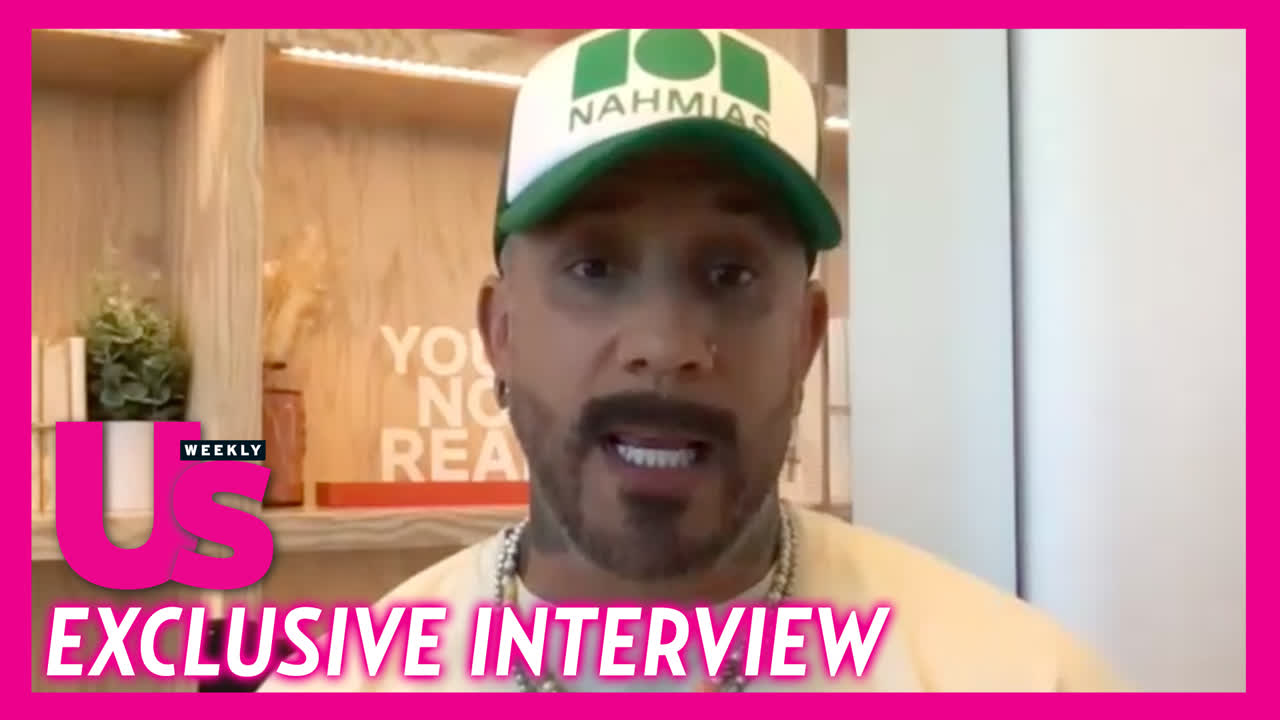
©
The Sandman season 2 contains one of the worst American accents ever committed to the small screen
Comic adaptation feels like being trapped in a whirlwind of plot and intrigue, which never materialises into something solid enough to get to grips with

© Ed Miller/Netflix
10 of the sweetest things Noel and Liam Gallagher have said about each other
‘I love him. He’s my brother. You know what I mean?’

© PA
Such Brave Girls is bleakly funny, realistic and truly brave TV
The second season of Kat Sadler’s Bafta-winning series radiates an almost feral comic energy while plumbing the lowest emotional depths

© BBC/Various Artists Limited
From Champagne Supernova to The Masterplan: The 20 best Oasis songs, ranked
As the Gallagher brothers finally prepare to reunite onstage for the first time since 2009, Mark Beaumont and Roisin O’Connor take a trip through their favourites from the Oasis back catalogue

© Getty
Moviedrome: the cult BBC film strand that changed how we watched movies
Made to feel like recommendations shared with you by a mate down the pub, ‘Moviedrome’ – which broadcast cinema’s wildest, strangest films – left late-night BBC Two audiences spellbound on Sunday nights from 1988 to 2000. As it inspires a season of screenings at London’s BFI, Alex Deller reminisces with its creators
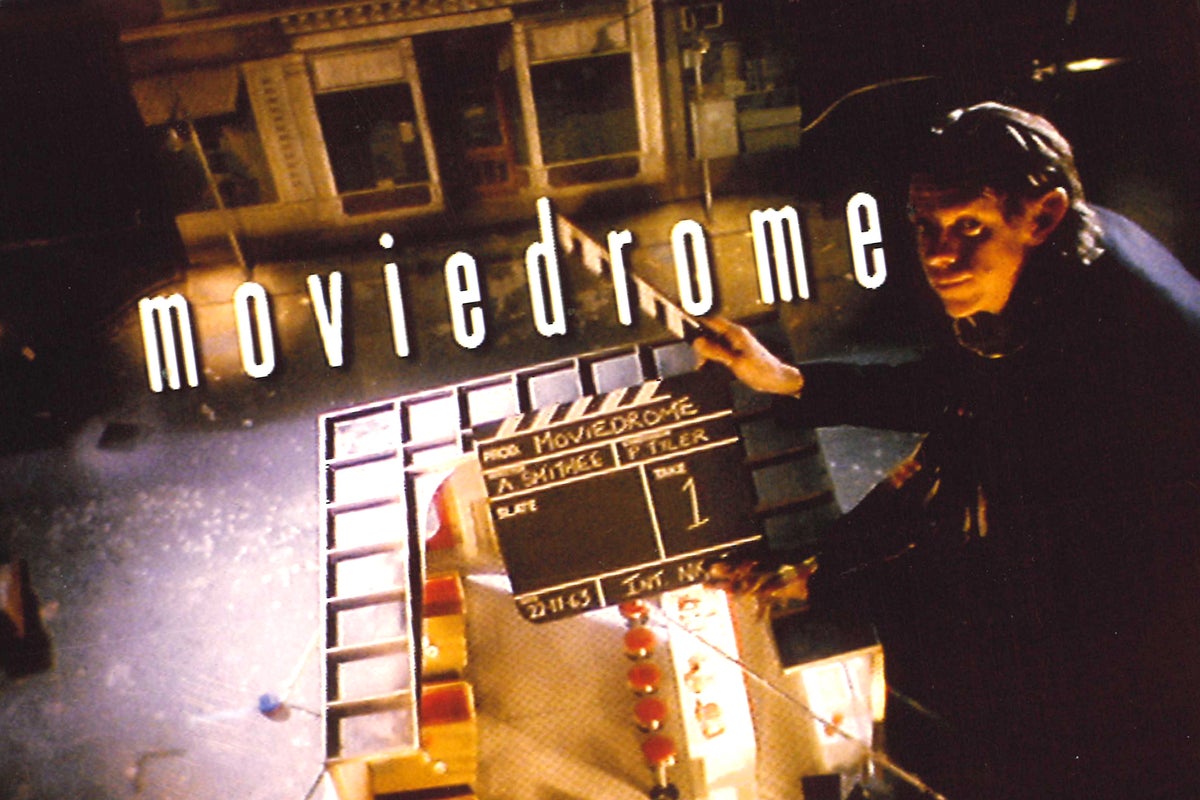
© BFI
‘I owe everything to Ozzy Osbourne’: Metallica, Alice in Chains, Sammy Hagar and Yungblud on Black Sabbath’s farewell show
As one of the world’s most influential bands prepare to bid farewell with a huge show at Villa Park in Birmingham, Roisin O’Connor speaks to just a few of the musicians whose lives were changed by the Prince of Darkness

© Getty
Are bigger AI models better stock pickers? Maybe, but probably not
Starmer admits failing to engage ahead of welfare U-turns
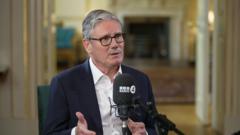
Labour won't break tax pledges after welfare climbdown, minister says
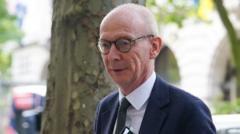
Man admits murders of four Idaho students in deal to avoid death penalty

Watch: What to know about the Diddy verdict - and what comes next
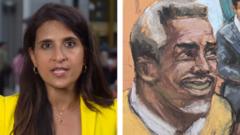
Diego Luna scores twice as USMNT secures spot in Gold Cup final
The United States men’s national soccer team took a hot start on Wednesday night at Energizer Park and rode it to victory over Guatemala to reach the Gold Cup final.
This is the 13th time the U.S. has reached the Gold Cup final, and they will face the winner of Mexico-Honduras to determine who wins it all on Sunday.
After needing a penalty shootout to reach the semifinals, the USMNT hoped it didn’t need to go that far against Guatemala, and Diego Luna led the way to the 2-1 win.
CLICK HERE FOR MORE SPORTS COVERAGE ON FOXNEWS.COM
It began in the fourth minute, when Luna was in the right place at the right time after a shot on net was saved. His one-two touch went right into the back of the net for the early lead.
UNEXPECTED DRONE OPERATED BY UNIDENTIFIED PARTY SIGHTED NEAR USMNT TRAINING GROUNDS: REPORTS
But just a few minutes later, Luna really gave the USMNT some breathing room after a tremendous effort to extend the lead.
Malik Tillman got the assist after Luna made one defender miss and launched a shot toward the left side of the net that got past the goalkeeper for a 2-0 lead.
It was mostly silent as the first half ended and the second half minutes started to dwindle for Guatemala. However, a timely goal brought some momentum to their sideline.
Olger Escobar got a ball past Matt Freese to make it a 2-1 game in the 80th minute.
But the USMNT’s defense was stellar at the end of the match to make sure they came away victorious.
The U.S. is hoping to win its eighth Gold Cup, while Mexico, if they defeat Honduras, would be looking to extend its title lead. They have nine all-time.
Follow Fox News Digital’s sports coverage on X, and subscribe to the Fox News Sports Huddle newsletter.
